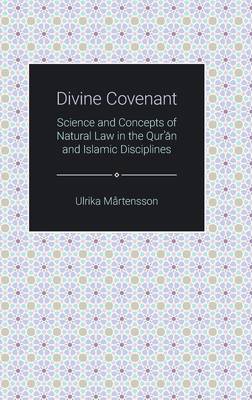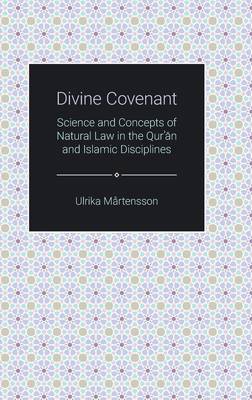
- Retrait gratuit dans votre magasin Club
- 7.000.000 titres dans notre catalogue
- Payer en toute sécurité
- Toujours un magasin près de chez vous
- Retrait gratuit dans votre magasin Club
- 7.000.0000 titres dans notre catalogue
- Payer en toute sécurité
- Toujours un magasin près de chez vous
Divine Covenant
Science and Concepts of Natural Law in the Qur'an and Islamic Disciplines
Ulrika Martensson
153,45 €
+ 306 points
Format
Description
Divine Covenant explores the Qur'anic concept of divine knowledge through scientific, theoretical paradigms - in particular natural law theory - and their relationship with seven Islamic scholarly disciplines: linguistics, hadith, politics, history, exegesis, jurisprudence, theology. By comparing scholarship within these disciplines with current state-of-the-art, the study shows how the Qur'anic concept of divine Covenant reflects natural law theory, relates to a range of other legal, political, and linguistic Qur'anic concepts, informs the canon's entire literary structure, and has implications for a new, legal theory of 'Islamic origins'. The book makes the case that the Islamic disciplines share political economy, institutional framework, and decisive theoretical topics with the Qur'an. The latter include the natural law-related issues of human rights, constitutional separation of powers, and social contract. The book surveys the scholarly deliberations of these topics within the parameters of each discipline and in changing contexts. In addition, consequences of the modern nation-state institutional order for early modern and contemporary Qur'anic studies are mapped. It is argued that the early and medieval Islamic disciplines offer scientifically valuable knowledge because they refer to the same institutional framework as the Qur'an. The disciplines are also important parts of European political history, where they have inspired social contract theory inclusive of diverse religious identities.
Spécifications
Parties prenantes
- Auteur(s) :
- Editeur:
Contenu
- Nombre de pages :
- 256
- Langue:
- Anglais
- Collection :
Caractéristiques
- EAN:
- 9781781791707
- Date de parution :
- 01-09-21
- Format:
- Livre relié
- Format numérique:
- Genaaid
- Dimensions :
- 156 mm x 234 mm
- Poids :
- 716 g

Les avis
Nous publions uniquement les avis qui respectent les conditions requises. Consultez nos conditions pour les avis.






